‘Emulate Prophet Muhammad’s ideological teachings to shape a better world’
The world has been urged to stand firm and united in support of the people of the oppressed people of Palestine who are going through an ‘unending and bitter genocide’ at the hands of Israel.
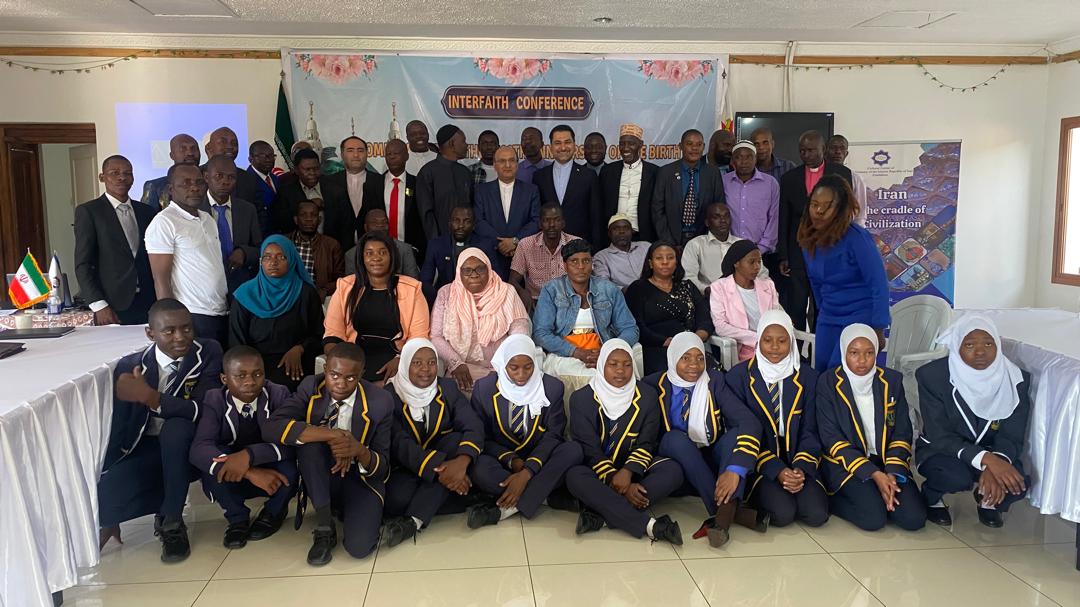
‘Emulate Prophet Muhammad’s ideological teachings to shape a better world’
The world has been urged to stand firm and united in support of the people of the oppressed people of Palestine who are going through an ‘unending and bitter genocide’ at the hands of Israel.
This stance was taken at an Interfaith Dialogue seminar, held last Friday at the Muhammad Mosque to celebrate the occasion of the 1500th anniversary of Prophet Muhammad (PBUH). The seminar was held under the theme: “The Political and Ethical Teachings ofPalestine (PBUH) for Building a Better World Order.”
In his opening remarks, the Cultural Counsellor of the Embassy of the Islamic Republic of Iran in Zimbabwe, Mr. Hamid Bakhtiyar noted that Prophet Muhammad (PBUH)’s teachings on the adherence to justice and international law are a lesson that resonates powerfully in today’s fractured world.
He said, despite these ideological teachings that still define and influence different people’s religious thinking today, faith communities today face poverty, injustice, and cultural weakness.
He bemoaned the unending genocide in Palestine, where the people are enduring genocide, displacement, and oppression at the hands of the Israeli regime.
He said the suffering in Gaza is a pain on the conscience of humanity, where messengers of genocide have turned a blind eye, but where friendly countries like Iran cannot remain silent.
Mr. Hamid Bakhtiyar said the injustice in Palestine calls for unity among people of different faiths. He said to overcome the disunity and disharmony on the question of Palestine, all religions must return to the shared values of the prophets and holy texts.
He further said that the teachings of Prophet Muhammad, like those of Jesus Christ, and other messengers of God, call on everyone to rise above narrow self-interests and build a community based on dignity, fairness, and compassion.
Mr. Hamid Bakhtiyar noted that all leaders, scholars, governments, and faith communities carry the responsibility to awaken societies and to work for justice.
He said humanity should stand guided by Prophet Muhammad (PHUH)’s Charter of Medina that remains a living testament to pluralism and coexistence, reminding all that ethical leadership is inseparable from spiritual principles.
The Cultural Counsellor urged like-minded world countries to confront today’s challenges, ranging from political division to global inequality, as the Prophet’s teachings serve not as relics of history, but as guiding lights for building an inclusive, equitable, and compassionate global order.
He urged the world to draw from this wealth of wisdom established by Prophet Muhammad to create a world where peace and justice are not just ideals, but lived realities for every community.
Presenting his keynote address before the gathering of high-profile religious leaders from the Abrahamic faith-based organizations, the Ambassador of the Islamic Republic of Iran in Zimbabwe, His Excellency, Dr Amir Hossein Hosseini, observed that one of the most profound lessons from the Prophet Muhammad is the idea of pluralism and coexistence.
He said drawing lessons from the Charter of Medina, in which Prophet Muhammad created a community where Muslims, Christians, Jews, and other groups lived together under a common civic agreement through respecting one another’s rights and responsibilities, Prophet Muhammad laid the foundation for dialogue and peaceful coexistence.
He said Zimbabwe and the rest of the international community can duplicate this model set up by Prophet Muhammad to establish a new global world order based on universal trust and love for one another through the establishment of dialogue processes meant to solve differences amongst communities and nations.
His Excellency, the Ambassador of the Embassy of the Islamic Republic of Iran, Dr Amir-Hosseini said the Israeli regime’s war crimes and genocide in Gaza—slaughtering civilians, women, and children, and destroying homes, schools, hospitals, and places of worship—are crimes against humanity in their most brutal form.
He added that the cowardly acts against the Islamic Republic of Iran, including assassinations, terrorism, cyberattacks, and the unlawful June 2025 attacks on the Iranian nuclear sites and facilities, flagrantly violated international law and Iran’s national sovereignty.
Dr Amir-Hosseini said such conduct exposes the hypocrisy of those who preach democracy and human rights while practicing occupation, apartheid, expansionism, neo-colonialism, and state-sponsored terrorism.
Sheikh Ismail Duwa, the President of the Supreme Council of Islamic Affairs in Zimbabwe said Islam and Christianity, as offshoots of the Abrahamic faith, shares a common vision of peace and brotherhood built upon their foundation and founding. He noted that the excellent diplomatic relations between Zimbabwe and Iran have made it possible for Zimbabwe and Iran to engage in meaningful and beneficial interfaith dialogue processes.
Bishop Nhamo Gwete, the National Chairman of the Zimbabwe Amalgamated Council of Churches said Prophet Muhammad (PBUH) upheld the essence of humanity and valued the existence of peaceful race relations between people of various races and religions.
He said Prophet Muhammad’s teachings on the importance of love, peace, kindness, equality, humility, patience, respect and emancipation, among others, are some of the virtues that still defines and influence the human race and the dominating Abrahamic faith.
Sheikh Abdullah Makwinja said the 1500th anniversary of Prophet Muhammad’s birth has created moments of unity amongst all the world believers as Prophet Muhammad was a great teacher and believer in religious peaceful coexistence and tolerance, peace and justice.
He urged the world to unite in support of the oppressed people of Palestine
He painfully observed that the genocide was not only affecting Muslims, but was also affecting Christians, Jews and followers of other religions.
Dr Azizi from the university of Zimbabwe opined that the transformation of the early Muslim society, from a desert of ignorance to a beacon of intellectual brilliance, is not merely a historical curiosity. It is a profound testimony to the power of divine guidance from the Prophet Muhammad that gave rise to the value of knowledge and the capacity of human beings to rise when inspired by divine truth.
He said Prophet Muhammad did not just preach morality, but that he also cultivated minds, encouraged research, and laid the foundation for a civilization that would illuminate the world.
Tauya Chinama, the team leader of Humanists Zimbabwe urged the world to act positively in support of the suffering people of Palestine. He urged the world not to rely on rhetoric but to act positively and impactfully to bring real freedom to the people of that country.
Johannes Maseko from the Zimbabwe Catholic Bishops Conference said his church values peace and dialogue as tools for solving conflicts. He also said the Roman Catholic Church values and encourages the practice of responsible politics. He noted that politics grounded in the love of God or ethics is a platform that launches a civilization of love and fraternity, respect and honour for the dignity of humans.
He urged politicians from across the world to practice politics of ethics that serve love, equality, harmony, and world peace, politics that aim to promote human life and are rooted in love for everyone and in pursuance of justice for all.
Archbishop Albert Chikuni, the president of the Interreligious Association for Peace and Development in Zimbabwe (IAPDZ), in a speech read on his behalf by Bishop Maponga, observed that the various wars and conflicts that are escalating across the globe, where the poor, women and children are the major victims, stand in stark opposition to Prophet Muhammad’s vision of building a better world rooted in mercy, justice, compassion and universal dignity.
The seminar drew participants from the embassy of the Islamic Republic of Iran, the Zimbabwe Catholic Bishops Conference, the Zimbabwe Interreligious Council Interfaith platform, the Zimbabwe Amalgamated Council of Churches, the Supreme Council of Islamic Affairs in Zimbabwe and the Zimbabwe Ahlul Bayt, and the Islamic Guidance Council, among others.

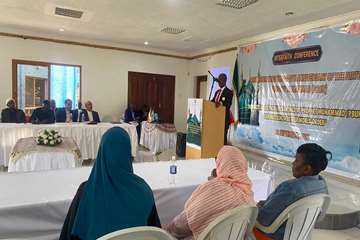
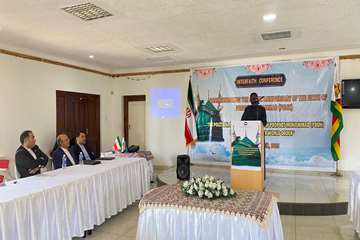
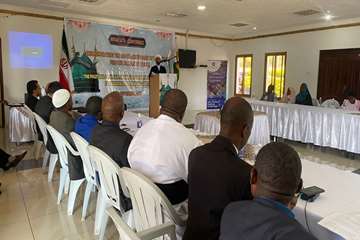
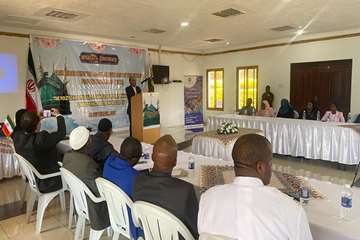
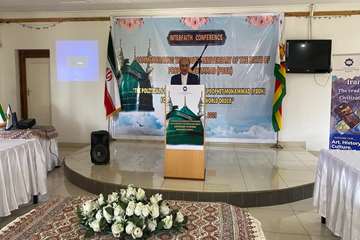

Write your comment.